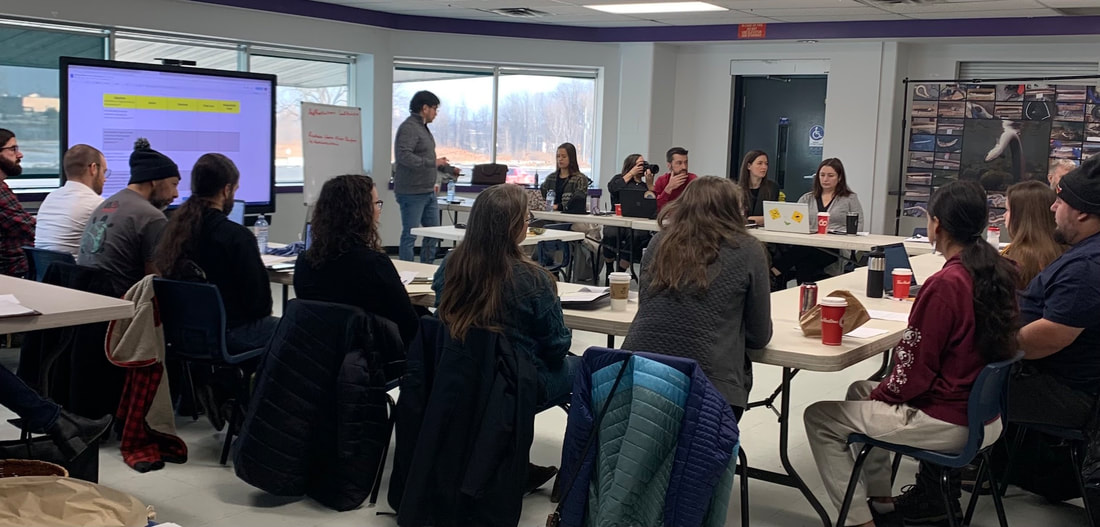|
On February 8th and 9th, 2024, Plenty Canada Executive Director Larry McDermott, and Operations and Environment Programs Manager Emily Morris, attended the American Eel Symposium hosted by the Mohawk Nation at Akwesasne. The symposium brought together representatives from First Nations, including Mohawk and Algonquin communities, environmental non-profits, and government regulators such as the Department of Fisheries and Oceans. The goals of the symposium included achieving a common understanding of the past and current conservation efforts for American Eel, increasing understanding of Indigenous relationships to the American Eel, identifying actions that will be taken over the short and long term to increase eel passage and reduce eel mortality throughout Algonquin and Mohawk territories, and promoting Indigenous co-management, decision-making, and participation in mitigation activities and capacity building.
The American Eel has always been an extremely important species for many Indigenous communities, including both Anishinaabek and Haudenosaunee peoples, and is used for a variety of different things including food, clothing, medicine, and offerings (learn more about the eel here). Eels often provided a lifeline for many communities during hard times as preserved eel lasts longer than any other protein source. American Eels used to be abundant in the St. Lawrence River watershed, including the Ottawa River watershed, but have experienced a 99percent decline, mainly due to the construction of hydropower dams. The American Eel is classified as endangered in Ontario and was classified as threatened by the Committee on the Status of Endangered Wildlife in Canada in 2012. However, the species has never been included in the Species at Risk Act and therefore receives no legal protection. The decision on whether or not to list the American Eel under the Act has been underway since 2015 and continues to be delayed. Additionally, although the American Eel is classified as endangered in Ontario and a recovery strategy was published in 2013, a government response statement is needed to actually commit Ontario to action. The government response statement was legally due in August of 2014 ... but we are still waiting. We will continue to engage in this issue and demand action on behalf of our relative, Pimizì, the American Eel. — Special thanks to Canadian Parks and Wilderness Society, CPAWS-OV, for the event summary and photo.
0 Comments
Your comment will be posted after it is approved.
Leave a Reply. |
|
-
Home
- Donate
-
Projects
-
Canada
>
- Plenty Canada CampUs
- The Healing Places
- Two-Eyed Seeing Bird Knowledge
- Niagara Escarpment Biosphere Network
- Greenbelt Indigenous Botanical Survey
- Great Niagara Escarpment Indigenous Cultural Map
- Ginawaydaganuc Indigenous Food Sovereignty
- Indigenous Languages and Cultures Programs >
- Wild Rice
- Good Mind Grappling (partnership)
- Ginawaydaganuc Village (partnership)
- Youth Programming >
- Americas >
- Africa >
-
Canada
>
- News
- Resources
- Partners
- Contact Us
Our Location266 Plenty Lane Lanark, Ontario Canada K0G 1K0 (613) 278-2215 |
Donate to
|
Subscribe to our Newsletter |

